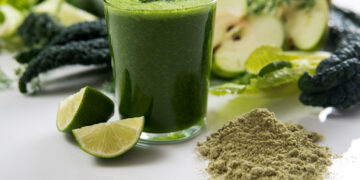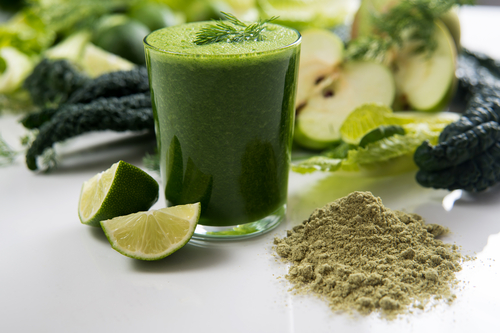There was a time when my kitchen cabinet was overflowing with powders, pills, and beautifully marketed “superfood” supplements. I was doing everything “right” on paper—drinking the green drinks, taking the adaptogens, following the protocols.
But I still didn’t feel right.
My energy was flat. My digestion was off. And most frustrating of all—I had no way of knowing if the things I was taking were actually doing anything. That’s when I stopped treating supplements like magic pills and started treating them like real food: sourced with care, used with intention, and deeply respected.
That shift made all the difference. Because the truth is, not all supplements are created equal. Some are lifelines. Others are just expensive dust.
Why Quality Matters More Than You Think
Superfoods and adaptogens can be incredibly powerful—when they’re clean, bioavailable, and sourced properly. But the wellness industry is vast, and the demand for quick-fix health has made room for companies that cut corners.
Some powders are sprayed with synthetic nutrients. Some capsules are packed with unnecessary binders and flow agents. Some labels promise purity but deliver underdosed blends or ingredients grown in contaminated soil.
That doesn’t mean you should stop supplementing. It means you should get smart about how you supplement—so what you take actually supports your body rather than confusing it.
Know What You’re Taking: Reading Labels with Intention
The front of the label will always try to sell you. The back is where the truth lives.
Start by flipping the bottle and looking for:
1. Clear, Single-Ingredient Listings
If you’re buying reishi, the label should say exactly that: “Reishi Mushroom Extract.” Not “proprietary mushroom blend,” not “superfood complex.” Transparency matters.
2. Source Location
Know where your herbs and powders come from. Good brands will tell you the country of origin, how it’s processed, and whether it’s been third-party tested for contaminants. If a product just says “Product of USA” but the plant doesn’t grow here naturally, ask questions.
3. Extraction Method
Many superfoods and herbs require extraction to unlock their benefits. For example, mushrooms like reishi or chaga are most effective when dual-extracted (using both water and alcohol) to pull out both beta-glucans and triterpenes. If you’re taking a powdered mushroom that hasn’t been extracted, your body might not be absorbing much.
4. Organic and Non-GMO Certification
Organic certification doesn’t guarantee everything—but it does reduce your exposure to pesticides and ensure a certain level of regulation. Look for USDA Organic, EU Organic, or comparable certifications, especially with algae, roots, and berries, which can absorb toxins from the environment.
5. Fillers and Additives
Steer clear of unnecessary ingredients like magnesium stearate, silicon dioxide, artificial flavors, and coloring. They don’t belong in food—and they don’t belong in supplements either.
Sourcing: Follow the Farm, Not the Hype
The best supplements begin with the soil they’re grown in. This is why “organic” isn’t just a label—it’s a signal that someone cared about the growing conditions.
Herbs like maca, for instance, grow best in the high Andes at specific elevations. Spirulina and chlorella should come from controlled freshwater farms that are rigorously tested for heavy metals and microcystins. Mushrooms need to be grown on wood, not on grain substrates, to produce their full spectrum of active compounds.
Ask where your product comes from. Good companies will tell you. Great ones will show you.
Capsule, Powder, or Liquid? What Works Best
There’s no one-size-fits-all, but the form of a supplement matters based on your goals:
-
Powders are ideal when you want flexibility and full-spectrum nutrients. Great for smoothies, lattes, or meals.
-
Capsules are convenient and good for standardized dosages—but watch for fillers and capsule materials (plant-based is best).
-
Tinctures (liquid extracts) absorb quickly, especially if made with alcohol or glycerin. Excellent for herbs like ashwagandha, schisandra, or holy basil.
-
Liposomal and fermented forms can improve absorption for certain nutrients like vitamin C, curcumin, or B-complex vitamins.
Start with what’s realistic for your routine—but prioritize quality over convenience. A daily teaspoon of a pure powder will always do more than a handful of questionable capsules.
Trustworthy Certifications & Third-Party Testing
Look for any of the following on the label or website:
-
NSF Certified or USP Verified: Ensures quality and label accuracy.
-
Non-GMO Project Verified: Independent testing for genetically modified ingredients.
-
Third-party tested for heavy metals, pesticides, and microbes: This is especially important for herbs grown in soil or algae harvested from water.
-
COA (Certificate of Analysis): The best brands will share their COA upon request. It proves the product is tested and meets standards for potency and purity.
Final Thoughts: Choose with Care, Not Fear
Supplements are tools. They can be deeply nourishing when chosen well—or a waste of energy and money when chosen blindly.
The goal isn’t to take more. The goal is to take better.
When you know what to look for—clear sourcing, clean ingredients, proper extraction—you begin to supplement from a place of trust, not hope. And that trust becomes part of your healing. You’re no longer just consuming—you’re partnering with plants, roots, minerals, and fungi that have been used with reverence for generations.
Choose slowly. Ask questions. Let your body feel the difference.



























